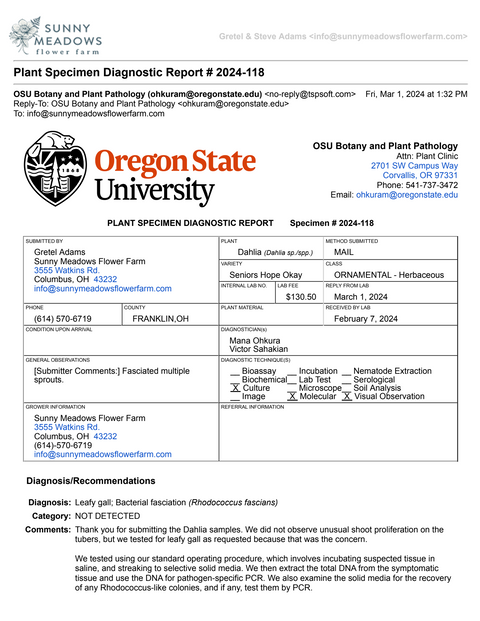Dahlia Tuber Disease
Before disposing of your tuber stock, be sure to get them tested to see if there is disease. There is one lab in the United States that tests for leafy gall, Oregon State University. The leading scientist researching gall, Melodie Putnam, has recently retired, but the lab can still isolate the bacteria. Other university labs can test for crown gall pathogens.
Leafy gall is also known as Rhodococcus fascians, and crown gall is also known as Agrobacterium.
The Lowdown on Leafy Gall by Melodie Putnam
Keep in mind...
-
Tubers with multiple shoots can still test negative. For bacteria to be cultured it must be showing visible signs of the disease, however, multiple shoots are not necessarily an indicator of gall and the tuber may still be negative.
-
When we are digging tubers from the field we dispose of any tubers that are showing signs of disease to avoid storing them with other tubers.
-
Although there is a growing awareness about tuber disease in the industry, information about the effects on plant habit is still being determined.
- Our guarantee does not cover dahlias that are planted into pots or bags instead of being planted into the ground. We do not recommend growing dahlias using this method, which is why we do not refund tubers once they are out of our care.
Tuber Disease Protocol
If you believe there is an issue with your tuber or plant please use the link below to fill out a dahlia tuber support ticket.



